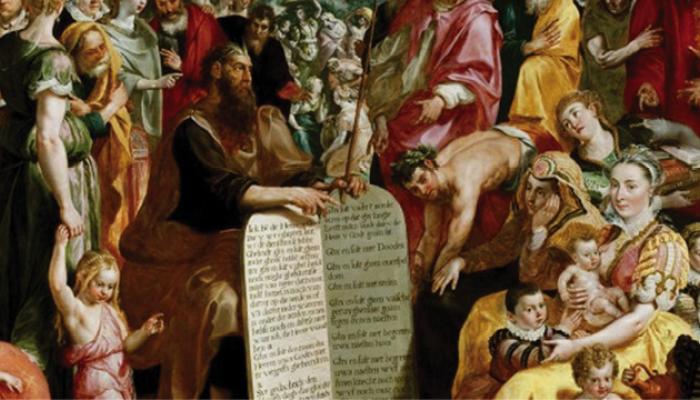
4.8 Was ist die Beziehung zwischen Glauben und Handeln?
Als Christ zu leben bedeutet bewusste Entscheidungen über unser Handeln zu treffen (was wir tun und was wir nicht tun), basierend auf unserer Beziehung mit Jesus. Wie die Bibel sagt: „so ist auch der Glaube ohne Werke tot“ (Jak 2:26)Jak 2,26: Denn wie der Leib ohne Geist tot ist, so ist auch der Glaube ohne Werke tot.. Wenn du wirklich an Jesus glaubst, wirst du tun wollen, wozu Er dich ruft, nämlich Gott und deinen Nächsten zu lieben.
Eine Weise, um dieses Engagement zu zeigen, ist der Versuch die zehn Gebote zu respektieren, auch wenn wir nicht immer erfolgreich darin sind. Gott schaut mehr auf die Liebe, die wir durch unsere Talente entgegenbringen, als darauf wie viel wir geben (Mk 12,41-44)Mk. 12,41-44: Und Jesus setzte sich dem Gotteskasten gegenüber und sah zu, wie das Volk Geld einlegte in den Gotteskasten. Und viele Reiche legten viel ein. Und es kam eine arme Witwe und legte zwei Scherflein ein; das ist ein Heller. Und er rief seine Jünger zu sich und sprach zu ihnen: Wahrlich, ich sage euch: Diese arme Witwe hat mehr in den Gotteskasten gelegt als alle, die etwas eingelegt haben. Denn sie haben alle von ihrem Überfluss eingelegt; diese aber hat von ihrer Armut ihre ganze Habe eingelegt, alles, was sie zum Leben hatte.. Als Christen sind wir dazu berufen für das Wohlsein aller Menschen zu arbeiten.
By what is love for the poor inspired?
Love for the poor is inspired by the Gospel of the Beatitudes and by the example of Jesus in his constant concern for the poor. Jesus said, “Whatever you have done to the least of my brethren, you have done to me” (Matthew 25:40). Love for the poor shows itself through the struggle against material poverty and also against the many forms of cultural, moral, and religious poverty. The spiritual and corporal works of mercy and the many charitable institutions formed throughout the centuries are a concrete witness to the preferential love for the poor which characterizes the disciples of Jesus. [CCCC 520]
What significance do the poor have for Christians?
Love for the poor must be in every age the distinguishing mark of Christians. The poor deserve not just a few alms; they have a claim to justice. For Christians there is a special obligation to share their goods. Our example in love for the poor is Christ.
“Blessed are the poor in spirit, for theirs is the kingdom of heaven” (Mt 5:3)—that is the first sentence in Jesus’ Sermon on the Mount. There is material, emotional, intellectual, and spiritual poverty. Christians must look after the needy of this earth with great consideration, love, and perseverance. After all, on no other point will they be evaluated by Christ so decisively as on their way of treating the poor: “As you did it to one of the least of these my brethren, you did it to me” (Mt 25:40). [Youcat 449]
When we hear, 'Your faith has saved you', we do not understand [God] to say absolutely that those who have believed in any way whatever will be saved, unless also works follow. [St. Clement of Alexandria, Stromata, Bk. 6, Chap. 14 (MG 9, 329)]





